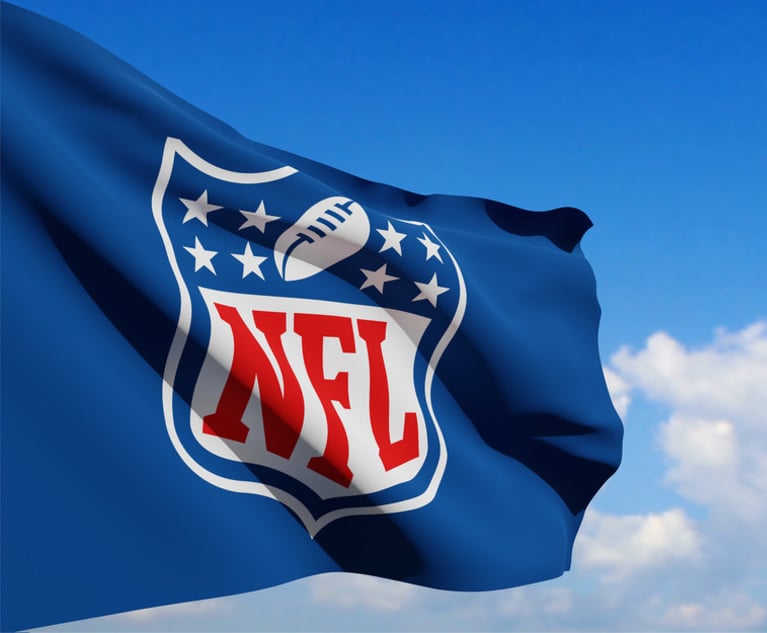The Iran Nuclear Deal: Lessons for Legal Negotiators
There are several takeaways, especially for lawyers who work on business transactions every day.
July 28, 2015 at 09:01 AM
2 minute read
Think the recent Iran nuclear deal has nothing to do with being a lawyer? Think again. According to Avrum Aaron of Legal Outsourcing Partners, there's a lot to be learned from the negotiations, especially for lawyers who work on business transactions every day.
Here are the lessons legal envoys can take away from Secretary of State John Kerry and the others at the negotiating table:
|- Walk Away When You Can: It was clear the U.S. was intent on sitting at the table and wasn't about to get up from it anytime soon. “The Iranian negotiators knew this and could basically decline to agree to any point they didn't like, knowing the U.S. would eventually relent,” Aaron says. Consider walking away as a tactic, when you can.
- Don't Need the Deal: “If you are in a negotiation and you give the other party the impression that you must make this deal, you are at a huge disadvantage,” says Aaron. In this case, the Iranians knew President Barack Obama needed the agreement to add to his foreign policy achievements.
- Assess Trust: “An agreement is only as good as the party signing it,” notes Aaron. He says many commentators have pointed out that the key to the Iranian deal is trusting Iran to stick with it, and there's plenty of debate about what that trust is worth. As in business, it's essential to assess levels of trust at the outset of a negotiation and factor it into the structure of any deal you hammer out.
This content has been archived. It is available through our partners, LexisNexis® and Bloomberg Law.
To view this content, please continue to their sites.
Not a Lexis Subscriber?
Subscribe Now
Not a Bloomberg Law Subscriber?
Subscribe Now
NOT FOR REPRINT
© 2025 ALM Global, LLC, All Rights Reserved. Request academic re-use from www.copyright.com. All other uses, submit a request to [email protected]. For more information visit Asset & Logo Licensing.
You Might Like
View All
New Merger-Review Process Could Doom Some Deals, Add Headaches, Subjectivity to Others
7 minute read
FTC Bans Exec From Chevron Board—Exercising Authority It Doesn't Have, GOP Dissenters Say
5 minute read

$5.3 Billion Sale of MotoGP's Parent Hammered Out by Lawyers From Around Globe
Trending Stories
- 1Fenwick and Baker & Hostetler Add DC Partners, as Venable and Brownstein Hire Policy Advisers
- 2H&R Block Accused of Negligence in Data Breach Suit
- 3Apple Disputes 'Efforts to Manufacture' Imaging Sensor Claims Against iPhone 15 Technology
- 4Following Treasury Hack, Do Federal Cybersecurity Standards Need an Update?
- 5Former Capital One Deputy GC Takes Legal Reins of AIG Spinoff
Who Got The Work
Michael G. Bongiorno, Andrew Scott Dulberg and Elizabeth E. Driscoll from Wilmer Cutler Pickering Hale and Dorr have stepped in to represent Symbotic Inc., an A.I.-enabled technology platform that focuses on increasing supply chain efficiency, and other defendants in a pending shareholder derivative lawsuit. The case, filed Oct. 2 in Massachusetts District Court by the Brown Law Firm on behalf of Stephen Austen, accuses certain officers and directors of misleading investors in regard to Symbotic's potential for margin growth by failing to disclose that the company was not equipped to timely deploy its systems or manage expenses through project delays. The case, assigned to U.S. District Judge Nathaniel M. Gorton, is 1:24-cv-12522, Austen v. Cohen et al.
Who Got The Work
Edmund Polubinski and Marie Killmond of Davis Polk & Wardwell have entered appearances for data platform software development company MongoDB and other defendants in a pending shareholder derivative lawsuit. The action, filed Oct. 7 in New York Southern District Court by the Brown Law Firm, accuses the company's directors and/or officers of falsely expressing confidence in the company’s restructuring of its sales incentive plan and downplaying the severity of decreases in its upfront commitments. The case is 1:24-cv-07594, Roy v. Ittycheria et al.
Who Got The Work
Amy O. Bruchs and Kurt F. Ellison of Michael Best & Friedrich have entered appearances for Epic Systems Corp. in a pending employment discrimination lawsuit. The suit was filed Sept. 7 in Wisconsin Western District Court by Levine Eisberner LLC and Siri & Glimstad on behalf of a project manager who claims that he was wrongfully terminated after applying for a religious exemption to the defendant's COVID-19 vaccine mandate. The case, assigned to U.S. Magistrate Judge Anita Marie Boor, is 3:24-cv-00630, Secker, Nathan v. Epic Systems Corporation.
Who Got The Work
David X. Sullivan, Thomas J. Finn and Gregory A. Hall from McCarter & English have entered appearances for Sunrun Installation Services in a pending civil rights lawsuit. The complaint was filed Sept. 4 in Connecticut District Court by attorney Robert M. Berke on behalf of former employee George Edward Steins, who was arrested and charged with employing an unregistered home improvement salesperson. The complaint alleges that had Sunrun informed the Connecticut Department of Consumer Protection that the plaintiff's employment had ended in 2017 and that he no longer held Sunrun's home improvement contractor license, he would not have been hit with charges, which were dismissed in May 2024. The case, assigned to U.S. District Judge Jeffrey A. Meyer, is 3:24-cv-01423, Steins v. Sunrun, Inc. et al.
Who Got The Work
Greenberg Traurig shareholder Joshua L. Raskin has entered an appearance for boohoo.com UK Ltd. in a pending patent infringement lawsuit. The suit, filed Sept. 3 in Texas Eastern District Court by Rozier Hardt McDonough on behalf of Alto Dynamics, asserts five patents related to an online shopping platform. The case, assigned to U.S. District Judge Rodney Gilstrap, is 2:24-cv-00719, Alto Dynamics, LLC v. boohoo.com UK Limited.
Featured Firms
Law Offices of Gary Martin Hays & Associates, P.C.
(470) 294-1674
Law Offices of Mark E. Salomone
(857) 444-6468
Smith & Hassler
(713) 739-1250






